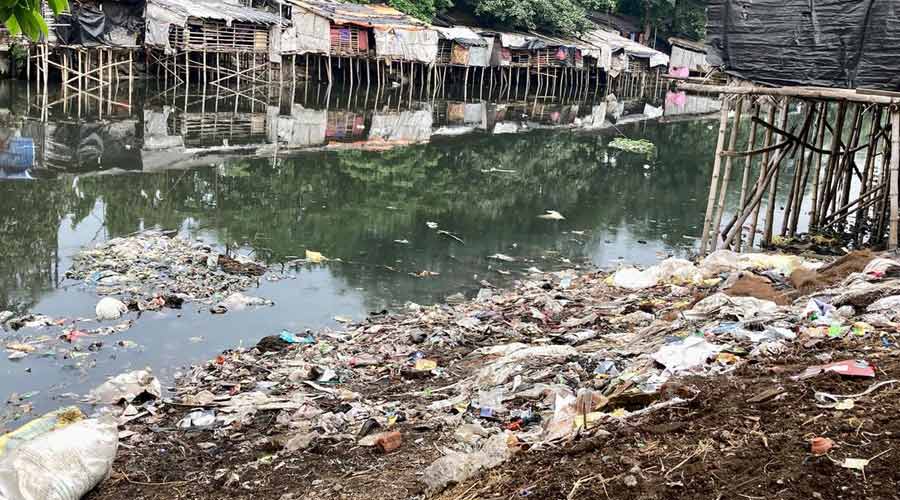Three months after India imposed a ban on single use plastics (SUPs) to tackle plastic waste and worsening pollution, plastics are still in rampant circulation across the country. The ban includes almost 21 SUP items such as plates, cups, cutlery, straws, packaging films and cigarette packets.
"Though the central government has issued the ban, the implementation lies with the respective state governments and their state pollution control boards," Ravi Agarwal, director of environmental NGO Toxics Link, told DW.
"The state's actions are not up to the mark; there seems to be lack of effective implementation strategy from the states to enforce the ban fully," he added.
But India, which uses about 14 million tons of plastic annually, has not issued any advisory to stop the use of SUPs, and no penalties have been imposed following the ban. SUP products continue to be available as usual.
The Central Pollution Control Board (CPCB) chairman Tanmay Kumar highlighted in a recent communication that despite the ban, the use of SUP items, specifically thin carry-bags, also continues unabated in the low-end section of the economy.
'Cheap alternatives' needed
Last year, a government committee identified the SUP items to be banned based on an index of their low utility and high environmental impact. The share of plastic used for these banned SUPs is less than 2-3% of the total plastic waste generated in India.
Prime Minister Narendra Modi made it clear that his government would be actively working towards a crackdown on plastic in its second term in power.
But experts warned it would not be an easy task given that close to 26,000 tons of plastic waste is generated across India every day, of which more than 10,000 tons stay uncollected.
Agarwal from Toxics Link stressed that alternatives to SUPs are needed.
"Availability of cheap alternatives to cater the demand of these banned products are critical challenges which need to be looked into," he said.
Bharati Chaturvedi, founder and director of Chintan Environmental Research and Action Group, pointed out that investments have not been adequately made to make the transition.
"There have to be incentives for this shift…Manufacturers have to be told on no uncertain terms. At times the all-pervasive plastics, backed by the might of the plastics industry, really needs a tsunami to shake it up,” Chaturvedi told DW.
SMEs to be hit hardest
India's per capita consumption of plastic at 11 kilograms per year is still among the lowest in the world (global average is 28 kilograms per year). In 2020-21, India generated nearly 3.5 million tons of plastic, according to government figures provided by the country's 28 states and 8 union territories.
Maharashtra state forms 13% of this, followed by Tamil Nadu and Punjab at 12% each, respectively. Meanwhile, India's recycling capacity at 1.56 million tons per year is only half of the total of plastics generated.
India lacks an organized plastic waste management system, resulting in widespread littering. Plastics end up in rivers, oceans and landfills, threatening the lives of wildlife species.
What's more, the ban as it stands impacts the most vulnerable segments, especially the small and medium enterprises (SMEs) of the plastic industry, and potential job losses are also being overlooked.
"Going by track record, we have directed strict enforcement of the ban, with a focus on street vendors, vegetable markets and local markets, along with checks at borders and inspection of concerned industries," a senior Central Pollution Control Board (CPCB) official told DW.
Political resistance to implement ban
For the ban on SUPs to be successful, industry experts are calling on the government to carry out a thorough economic and environmental cost-benefit analysis, as well as chalk out a plan to take into account social and economic impacts.
"We want a clean India and are ready to transition. But why not focus on the root of the problem — plastic waste. We need to improve waste segregation… and amp up our recycling infrastructure," said Deepak Ballani, director-general of the All India Plastic Manufacturers Association (AIPMA).
The AIPMA, one of the largest trade bodies representing the plastics industry, has requested the government to push the deadline for phasing out SUP products by a period of one year to 2023 due to economic distress faced by manufacturing units because of the COVID-19 pandemic.
But all stakeholders involved — producers of raw materials, plastic manufacturers, giant fast-moving consumer goods (FMCG) companies, and government entities — have their parts to play to make the ban a success.
"There are challenges. There is political resistance in some states, and also there is no planned effort by state authorities to implement the ban," Atin Biswas, program director at Centre for Science and Environment, told DW.
Chandra Bhushan, the CEO of International Forum for Environment, Sustainability and Technology, doubts India's ban alone would be sufficient to eliminate SUPs.
"There needs to be marketing of affordable alternatives as well as improvements in waste management to achieve results," she said.











